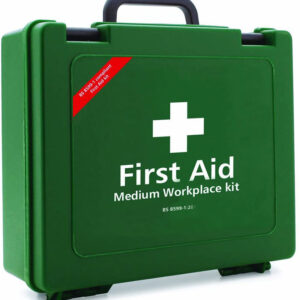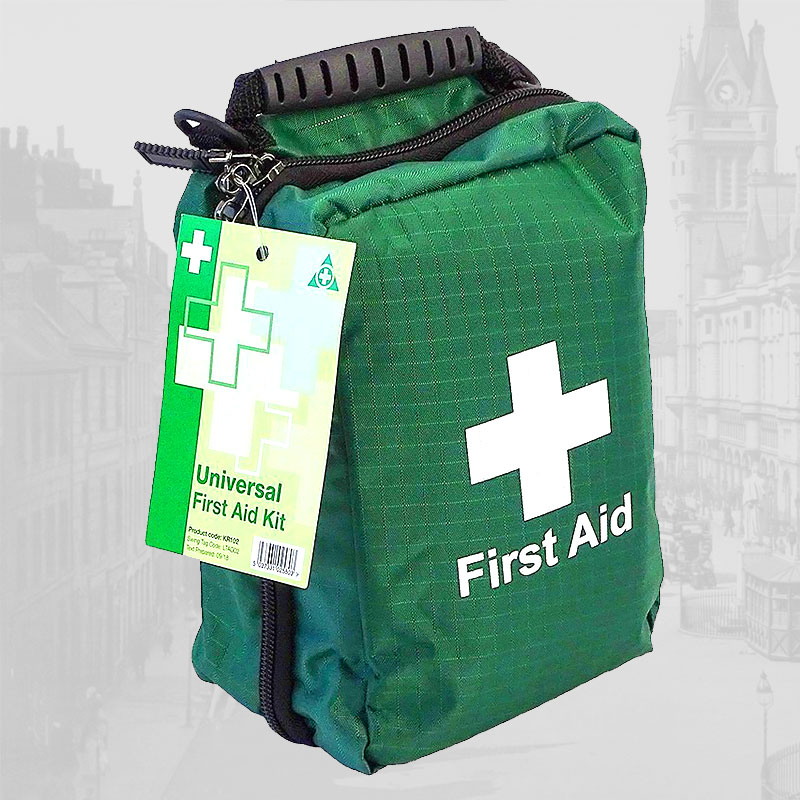 BS 8599-1, the British Standard applying to workplace first aid kits, is changing. The existing version, BS 8599-1:2011, has now been withdrawn and replaced by a new one, BS 8599-1:2019. Some of these changes are minor, but others are more substantial. In brief, this is what has changed:
BS 8599-1, the British Standard applying to workplace first aid kits, is changing. The existing version, BS 8599-1:2011, has now been withdrawn and replaced by a new one, BS 8599-1:2019. Some of these changes are minor, but others are more substantial. In brief, this is what has changed:
- Two new kit categories have been added to BS8599-1: Personal issue kits and critical injury packs
- The British Standard travel kit has been altered so it now matches the medium vehicle kit (as per BS8599-2) and has been renamed to ‘travel and motoring kit’
- Minor changes to the quantities of certain components in small, medium and large workplace first aid kits
While manufacturers have been offered a year to switch their products over to the new standard, Safety First Aid are already working to update our British Standards product range in line with these changes, so you can be sure that any of our products marked as British Standard compliant will still be so. This also means we are introducing new British Standard Personal Issue Kits and Critical Injury Packs.
The most significant changes in the updated British Standard are the introduction of the new personal issue kits and critical injury packs, and the alterations to the travel kit. Now known as the ‘travel and motoring kit’, this is designed to be transportable and used when working away from an employee’s principal workplace, stored in their company vehicle. Because vehicular accidents can involve significant trauma and the risk of fire, and because many travelling employees perform potentially risky manual work, the travel and motoring kit features a medium trauma dressing, two burn dressings and an adherent dressing, while some contents have been removed as they are not as necessary.
The personal issue kits and critical injury packs are two completely new categories for the BS 8599-1 first aid standards. The personal issue kit is designed to provide basic first aid to a single employee, and may be stored within larger first aid kits. Distinct from travel and motoring kits, these are intended to be carried about the employee’s person, including at their usual workplace, due to their heightened risk of injury or encountering injured people; these may be security guards or maintenance workers, for example. Because they are intended to be carried at all times, they contain only minimal first aid essentials. The Standard also suggests employers consider issuing their first aiders with these kits.
The critical injury pack is also designed to be included within, or in the vicinity of, more general first aid kits. Lacking many of the supplies of a general first aid kit, these only include essential items for dealing with serious trauma, geared towards stopping life-threatening blood loss. Alongside gloves, a foil blanket and clothing shears, these include trauma dressings, haemostatic dressings and a tourniquet. Use of these contents requires first aiders to undergo specialist training.
The critical injury pack is intended primarily for high-risk work with dangerous machinery, power tools or sharp instruments, typically encountered by those in construction, agriculture, forestry, mining, glass-cutting and industrial settings. However, critical injury packs are also appropriate for high-profile or public venues and facilities, like transport hubs, racetracks, airfields or sports arenas, which are at risk from acts of terrorism or mass-casualty accidents.
Safety First Aid has introduced new BS 8599-1:2019 compliant products and updated all our existing British Standard compliant kits to meet the new standards.
By Safety First Aid




